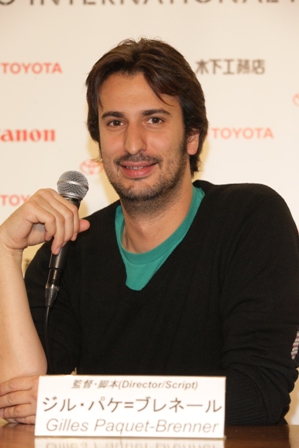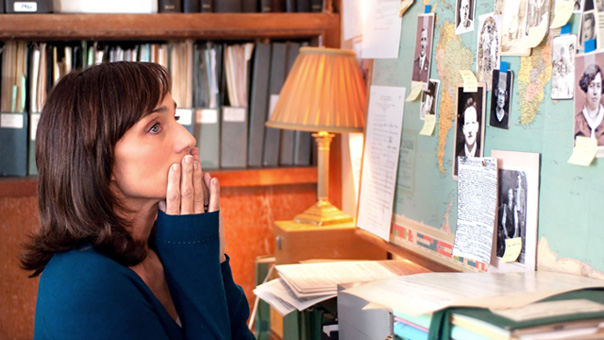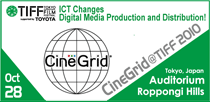2010.10.26
[Event Reports]
10/26 (Tue) Competition Section "Sarah's Key" Press Conference: Notes & Quotes

Date & Time: October 26th (Tuesday), from 14:00 @Movie Café
Appearance: Gilles Paquet-Brenner (director/script)

©2010 TIFF
Here are some notes and quotes:
Q: I want to know your age. Now, you previously spoke about the fact that there are Holocaust victims in your family.
Director Gilles Paquet-Brenner (D): My birthday is Sept. 14, 1974; I am 36. My grandfather was a German Jew. He was a musician living in a free zone in France, but was denounced by the French, and died in the concentration camp. His father and his uncle were from Berlin, and also died in the camps. There is a tribute to my grandfather in the film. It's the scene with the man with the poison in the ring. That's actually the story that I didn't know that my brother told me while we were preparing the film. I put it in the film because I thought it was so heartbreaking, but also full of humanity to imagine that when you have nothing left, the only thing you got is deciding when you are going to die.
Q: You said that "unless we really reflect on the past, it will be difficult to create the future." Could you elaborate?
D: The young generation, they do not want to talk about the past but only want to move forward. And probably in reaction to the older generations who talk about the past. I thought about a way to talk about it, so that the young generations can connect to the past and understand why it is important for us. So I put the two periods of time in parallel to show that the past has the influence on the present, and that when you face and understand the past, you can build a more solid future. It's also important not to forget. We are still quite close to the World War, but in 30 years, if the younger generations do not want to talk or hear about it, what is going to happen? A lot can happen unfortunately. I think basically the past is the ground that you can put in the tree to grow.
Q: How true is it to the original novel? How was the book received in France?
D: Yes, the film is very close to the book. There are minor differences. In the book, the little boy goes into the closet by himself, but in the film Sarah asks him to, so she has more guilt. Also you don't see Sarah growing up in the second part of the book as you see her in the film. Also the scene between William and his father doesn't exist in the book. Yes, the book is very successful in France. But what was very difficult in France was to have it published. Tatiana was not a best-selling author then, and because she is not Jewish, all the publishers though "No one would be interested; what can you write about it when you are not Jewish!" It took 3 years for the book to be published.
Q: How was the film received in France? It deals with the past the French do not necessarily want to remember.
D: It really depends on their age and how they are related to this history. Older people, some are very interested but some rejected it for obvious reasons. But the young generations have more perspective. So, on the one hand, they are shocked because they did not know that French police were involved in it. They thought it was all about the Germans and the Nazis. Good thing is that they don't feel guilty; they weren't there, they weren't even born.
Q: The description of the past and the present are well connected. Was there any technical difficulties?
D: Connecting the two periods of time was a major difficulty because you have to keep the film fluid. We worked hard on the script to make sure that two parts would be in resonance. In filming, we were careful about the last of a sequence and the first shot of the next sequence, between the two periods of time. Technically, it wasn't necessarily difficult, we were cautious in making it fluid for the audience. I didn't want the audience to feel that they were watching two films; I wanted them to watch one film with two parallel periods of time. The original book is way longer. Basically, we kept everything that was related to the plot, and what are essential the characters, to Sarah and Julia.
Q: The three generations intertwine. What was the intention behind using these three generations of people?
D: Intention would be that, depending on your age and background, you don't react to the past and the war, or the
past or the present the same way. The young journalist saying 'I watched it on TV' of course is sarcastic. It was a
way to show that we don't have a lot of sensibility to what's happening every day, to every conflict in the world
because there are so many and we don't really care. Younger generations don't care about the past, but they
don't even care about the present. I don't like the word message, but that's one of the messages. By watching the
tragedy of Sarah from yesterday, we could try to understand that there are lots of Sarahs today.
Sarah's Key

©Hugo Films
Film Information



